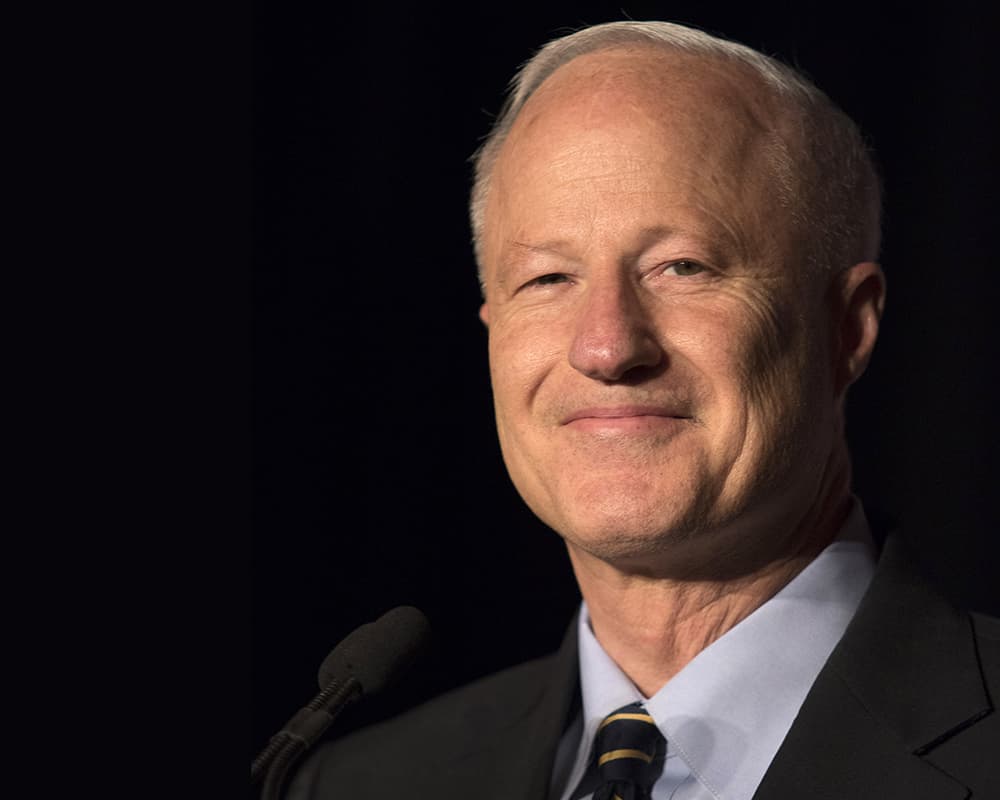U.S. Rep. Mike Coffman has impeccable timing.
With new reporting raising unsettling questions about National Security Advisor Michael Flynn's contacts with Russian Ambassador Sergey Kislyak, Coffman issued what was the strongest statement so far by a Republican lawmaker. If Flynn had "purposely misled" the president about his communications with Russia, he should resign, Coffman said late Monday afternoon.
A few hours later, with Flynn's position increasingly untenable, he announced his resignation with a letter that said he "inadvertently" gave President Donald Trump and Vice President Mike Pence "incomplete information" about his calls.
At issue was whether Flynn discussed U.S. sanctions against Russia that were announced in the waning days of the Obama administration in response to evidence the Kremlin interfered in the election to help Trump.
“As national security advisor, Michael Flynn is responsible to the President, Vice President and the American people," Coffman said in a statement released late Monday. "It is his duty to be fully transparent and forthright in his actions — anything less is unacceptable. If in fact he purposely misled the President, he should step down immediately.”
Throughout the reporting on Flynn's communication with the Russian ambassador, it's been unclear who else in the transition team might have been aware of his conversations.
The Washington Post reported that acting attorney general Sally Q. Yates -- the same person fired by Trump for refusing to defend his executive order restricting entry to the United States by refugees and people from seven predominantly Muslim countries -- told the White House in late January that she believed Flynn had misled senior administration officials about his communications with the Russian ambassador and that Flynn was vulnerable to Russian blackmail.
Flynn's contact with Kislyak goes back to before Trump was elected.
Many officials expected Russian retaliation after the Obama administration announced sanctions on Dec. 29, but Russian President Vladimir Putin said the next day that he would not respond, and Trump praised that lack of response.
Here's the Washington Post:
Intelligence analysts began to search for clues that could help explain Putin’s move. The search turned up Kislyak’s communications, which the FBI routinely monitors, and the phone call in question with Flynn, a retired Army lieutenant general with years of intelligence experience.
From that call and subsequent intercepts, FBI agents wrote a secret report summarizing Flynn’s discussions with Kislyak.
Yates, then the deputy attorney general, considered Flynn’s comments in the intercepted call to be “highly significant” and “potentially illegal,” according to an official familiar with her thinking.
Flynn initially said he did not talk about sanctions with the ambassador and then later told the Washington Post he “couldn’t be certain that the topic never came up.”
In his resignation letter, he described the omissions as "inadvertent."
The New York Times reports that officials familiar with the call describe it as ambiguous enough that Trump would have been justified in keeping or getting rid of Flynn. In remarks that came not long after advisor Kellyanne Conway said Flynn has "the full confidence" of the president, White House Press Secretary Sean Spicer said Trump is "evaluating the situation."
The Washington Post describes Congressional Republicans as "divided," but many of them had remained silent and some expressed strong support for Flynn.
This story has been updated throughout to reflect breaking news.













